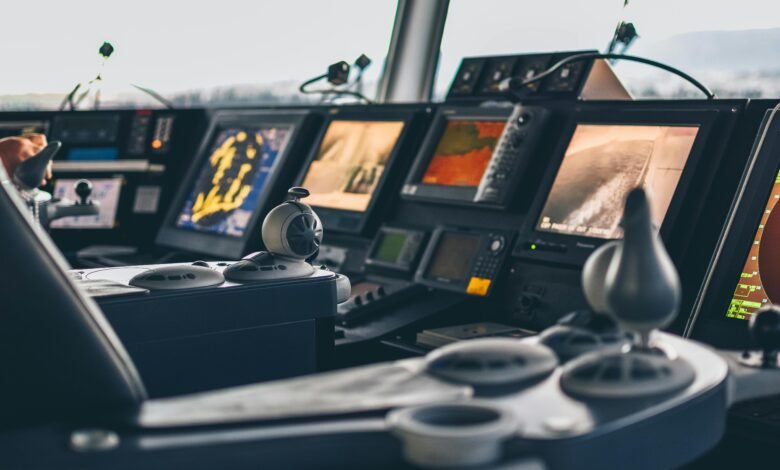Instanavigation : A Leap Into the Future of Navigation Technology

The way we navigate our world has evolved significantly with advancements in technology. One of the most groundbreaking innovations in this space is Instanavigation. This cutting-edge navigation system combines the power of artificial intelligence (AI), real-time data, and machine learning to deliver unparalleled precision and efficiency. Whether for daily commutes, exploring new cities, or outdoor adventures, it is redefining how we travel.
What Is Instanavigation?
At its core, Instanavigation represents the next generation of navigation systems. Unlike traditional GPS systems that rely on static maps and pre-set routes, it dynamically adapts to real-time conditions. By integrating data from multiple sources such as traffic sensors, satellite communications, and user inputs, it ensures users have the most accurate and efficient routes at their fingertips.
Key Features :
- Real-Time Data Integration: Instanavigation uses live data to continuously update routes, avoiding traffic jams, accidents, and road closures.
- Advanced Algorithms: Sophisticated algorithms process this data to recommend the best routes tailored to user preferences.
- Multi-Modal Navigation: The system supports various modes of transport, including driving, walking, biking, and public transport.
- Augmented Reality (AR): Some versions incorporate AR for visual guidance, overlaying directions and points of interest on real-world views.
How Does Instanavigation Work?
The secret behind it lies in its seamless integration of advanced technologies. Below is an overview of how it operates:
1. Data Collection and Processing
Instanavigation gathers information from:
- Traffic Sensors: Detect congestion and provide updates on road conditions.
- User Inputs: Incorporates reports on accidents, delays, or hazards.
- Satellite Communication: Offers precise geolocation and mapping.
2. Dynamic Route Optimization
Using machine learning, it predicts traffic patterns and adjusts routes accordingly. It can:
- Identify the fastest paths.
- Suggest fuel-efficient routes.
- Recommend alternative modes of travel, such as biking or public transit, for eco-conscious users.
3. Personalized Recommendations
Over time, it learns user preferences. Whether it’s avoiding toll roads, selecting scenic routes, or prioritizing safety, the system adapts to individual needs.
Why Choose Instanavigation Over Traditional GPS?
1. Real-Time Updates
Traditional GPS systems lack the ability to adapt quickly. it’s real-time data ensures users always have up-to-date information.
2. Safety and Reliability
From alerting users about hazardous conditions to guiding them through unfamiliar terrain, Instanavigation prioritizes safety.
3. Enhanced User Experience
Intuitive interfaces, AR overlays, and turn-by-turn voice guidance make navigation seamless and enjoyable.
Benefits :
1. Increased Efficiency
Avoiding congestion and predicting delays can save users both time and stress. Instanavigation ensures smooth travel every time.
2. Better Fuel Management
By optimizing routes for fuel efficiency, it helps reduce costs and carbon footprints. For electric vehicle owners, it identifies charging stations along the way.
3. Eco-Friendly Navigation
The system’s support for multi-modal transport—including biking and public transit—aligns with global sustainability goals.
4. Unmatched Accessibility
With offline functionality and global coverage, it is reliable even in remote areas with poor connectivity.
It’s Role in Future Technologies
The impact of it extends far beyond personal navigation. Here’s how it’s shaping future technologies:
1. Autonomous Vehicles
Self-driving cars require precise navigation. Instanavigation’s real-time adaptability makes it an ideal companion for autonomous systems.
2. Smart Cities
Integration with smart city infrastructure—such as automated traffic lights and parking systems—will further enhance efficiency.
3. Personalized Travel Experiences
Advancements in AI will make it even more intuitive, providing highly personalized travel recommendations.
4. Virtual Reality Integration
Virtual reality could allow users to preview their routes in immersive environments before starting their journey.
Your Perfect Travel Companion
For users who prefer a larger screen, the Tablet offers a comprehensive navigation experience. With a high-resolution display, intuitive interface, and powerful processing, this tablet is ideal for planning and executing journeys with ease.
Frequently Asked Questions (FAQs)
1. Is it available worldwide?
Yes, it supports most countries and is expanding its coverage to include more rural and remote areas.
2. Can I use it offline?
Absolutely. Offline maps and features ensure uninterrupted navigation even in areas with poor connectivity.
3. Does it integrate with in-car systems?
Yes, it seamlessly integrates with most in-car navigation systems, providing real-time updates and voice guidance.
4. Is it eco-friendly?
By optimizing routes and supporting sustainable modes of transport, it contributes to reducing the carbon footprint of its users.
5. How does Instanavigation ensure user safety?
The system provides alerts for hazardous conditions, such as accidents, poor visibility, or road closures, enhancing overall safety.
Conclusion
Instanavigation is not just another navigation tool; it’s a revolutionary system designed to meet the demands of modern travelers. By leveraging real-time data, advanced algorithms, and multi-modal transport options, it provides unparalleled efficiency, safety, and convenience.
As we look toward the future, it’s integration with autonomous vehicles, smart cities, and virtual reality will only enhance its utility. This content, prepared by baddiehub, highlights the transformative potential of it in reshaping the way we navigate. Embrace the future of navigation today with it—your ultimate travel companion.




